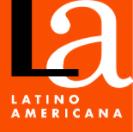Multi-sited Ethnography: Reactions to, and Potentials of, an Ethos of Anthropological Method During the Early Decades of the 2000s
Keywords:
multi-sited ethnography, metamethod, research designAbstract
I develop here a discussion of the idea of multi-sited ethnography by engaging with the reactions to it that I have perceived, primarily among anthropologists. These reactions express an interesting mix of doubt and hope—an anxiety structure-- for innovation in the practices of research in the classic tradition of fieldwork/ethnography that continues, perhaps more than ever, to give shape and identity to social/cultural anthropology. However, in answering for multi-sited ethnography, I do not want to merely offer a justification for it or argue for its feasibility, but rather I view the problems of its implementation, and the kinds of imagination that this requires,as an opening to a thoroughgoing argument for the need to reform, reinvent, or redesign the deeply engrained aesthetic and culture of method for certain kinds of research horizons in which anthropology is now deeply involved. These are referenced by such terms as the anthropology of globalization, the anthropology of the contemporary, and calls for public anthropology, among others. My concerns here operate at the level of metamethod or the ways in which within a particular professional culture of research, certain norms, forms, and indeed aesthetics of practice, usually communicated more by lore, storytelling, example, and tacit means.
References
Bourdieu, Pierre (1990). “The Scholastic Point of View.” Cultural Anthropology. Vol 5, N 4, pp. 380-391.
Callon, Michel. (1998). The Law of the Markets. Oxford, Blackwell Publishers.
Boyer, Dominic, James D. Faubion and George E. Marcus, eds. ( 2015). Theory Can Be More Than It Used to Be: Learning Anthropology’s Method in a Time of Transition. Ithaca, Cornell University Press.
Boyer, Dominic, y George E. Marcus, eds. En prensa. Collaborative Anthropology Today: a Collection of Exceptions. Ithaca, Cornell University Press.
Cantarella, Luke, Christine Hegel, y George E. Marcus. En prensa. Ethnography by Design: Scenographic Interventions in Fieldwork. London, Bloomsbury
Clifford, James y George E. Marcus, editores (1986). Writing Culture: the Poetics and Politics of Ethnography. Berkeley, University of California Press.
Faubion, James D. y George E. Marcus, editores. (2009). Fieldwork Is Not What It Used To Be. Ithaca, Cornell University Press.
Fischer, Michael(2007). “Four Genealogies for a Recombinant Anthropology of Science and Technology.” Cultural Anthropology. 22(4): 539-615.
Fortun, Kim (2001). Advocacy After Bhopal. Chicago, University of Chicago Press.
Holmes, Douglas R.y George E. Marcus ( 2005). “Cultures of Expertise and the Management of Globalization: Toward the Re-functioning of Ethnography. En Ong, Aihwa and Stephen J. Collier,editores. Global Assemblages: Technology, Politics, and Ethics as Anthropological Problems. Oxford, Blackwell. pp. 235-52.
Marcus, George E. (1992-2000). Late Editions, Cultural Studies for the End of the Century. 8 Volumes. Chicago: University of Chicago Press.
Marcus, George E. (1995). Ethnography in/of the World System: the Emergence of Multi-sited Ethnography. Annual Review of Anthropology, Vol 23, pp.95-117.
Marcus, George E. (1998). Ethnography Through Thick & Thin. Princeton, Princeton University Press.
Marcus, George E. y Fernando Mascarenhas (2005). Ocasião: the Marquis and the Anthropologist, a Collaboration. Walnut Creek, AltaMira Press.
Ong, Aihwa y Stephen J. Collier, editores (2005). Global Assemblages: Technology, Politics, and Ethics as Anthropological Problems. Oxford, Blackwell.
Rabinow, Paul, George E. Marcus, James D. Faubion y Tobias Rees (2008). Designs for an Anthropology of the Contemporary. Durham, Duke Universiy Press.
Riles, Annelise (2003). Network Inside Out. Ann Arbor, University of Michigan Press.
Strathern, Marilyn (2004). Commons and Borderlands: Working Papers on Interdisciplinarity, Accountability and the Flow of Knowledge. Oxford, Sean Kingston Publishing.
Willis, Paul (1981). Learning to Labour: How Working Class Kids Get Working Class Jobs. New York, Columbia University Press.
























